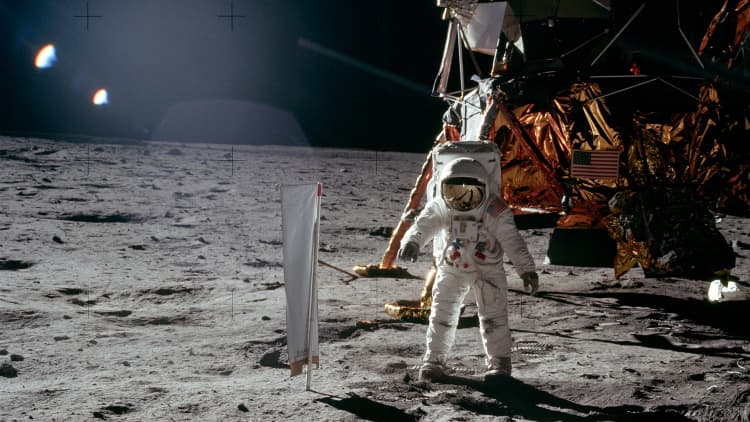Intuitive Machines’ Nova-C lander “Odysseus” deploys from the upper stage of SpaceX’s Falcon 9 rocket to begin the IM-1 mission.
NASA TV
Shares of Intuitive Machines jumped for a second consecutive day after the company issued an update that said its moon lander mission “is in excellent health.”
The Texas-based lunar company launched its inaugural cargo mission, known as IM-1, on a SpaceX rocket early Thursday morning.
In an update Friday afternoon, Intuitive wrote that the mission remains on track but that it has delayed the first attempt at igniting the lander’s engine. That represents a step Intuitive calls “engine commissioning,” or the first time the engine starts in the vacuum of space. The company noted it tested the engine “thousands of times” before the mission but that the process’ timeline needed to be adjusted after reviewing mission data.
Intuitive did not say when it expects to attempt the engine commissioning, but reiterated earlier statements that the lander is in “excellent health.”
Intuitive Machines’ stock jumped as much as 30% in early trading Friday before paring gains finish the day up 9% at $7.32 a share.
The stock surged 35% on Thursday after the IM-1 mission launched successfully. Since IM-1 launched, Intuitive Machines’ stock had gained 47% as of Friday’s close.
The company’s shares still trade below its post-SPAC merger debut pricing a year ago, however.
Andrew Chanin, CEO of ProcureAM, which runs the “UFO” space-focused ETF, emphasized to CNBC that he is “never shocked to see volatility related to a space company, especially a pure-play space company” and noted that the yet-unprofitable Intuitive Machines is a relatively small company by market size.
“We’re rooting for them. To the extent that they can show success here ⦠hopefully that will bring more belief that this is something that’s doable,” Chanin said.
The IM-1 lander, carrying both government and commercial research payloads, is expected to spend about eight days traveling to the moon before making a landing attempt on Feb. 22.
“There’s a tremendous amount of focus on the moon right now. Most investors don’t have much, if any, space exposure currently and to the extent that the U.S. commercial businesses, [NASA], or foreign governments see success on the moon, it appears that it’s only going to encourage other entities to also ramp up their focus and spending on the moon,” Chanin said.

Don’t miss these stories from CNBC PRO:

